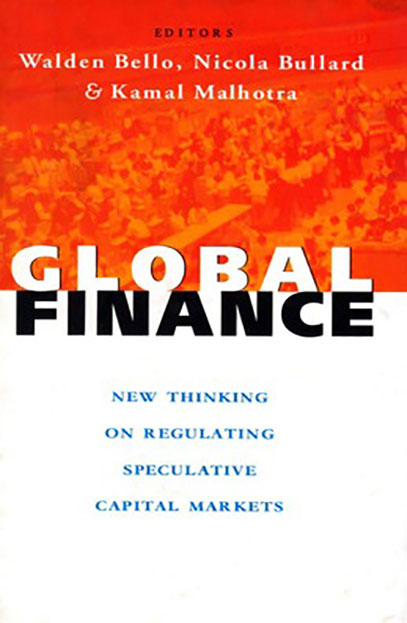- Shop
- Global Finance: New Thinking on Regulating Speculative Capital Markets
Global Finance: New Thinking on Regulating Speculative Capital Markets
| Language: English |
Tags :
Book Info
In this important policy-and campaign-relevant book, economists, intellectuals and NGO leaders from both North and South confront what has now become the central issue of the new globalized world economy. Ever since the Asian crisis of 1997 threatened a chain-reaction of economic destabilization, governments, the IMF, even the G7, and even George Soros, have concluded that something needs to be done. This volume examines the range of different ideas and approaches they have come up with. Among the issues examined are: How do we go about renewing the process of governance of the global economy? Can the IMF be reformed? Do we need a new World Financial Authority? Is there a case for capital controls? Could an international bankruptcy procedure be set up for countries, emulating the US's Chapter 11 for companies? Is the Tobin Tax on foreign currency transactions part of the solution? What effective steps need to be taken in relation to the most deeply indebted countries? Contributors include Walden Bello, John Cavanagh, Susan George, Carlos Fortin, Martin Khor, Rodney Schmidt and others. They set their suggestions in the context of understanding what has happened during the past two decades of neo-liberalism's hegemonic position over economic thinking and policy. And they put up for discussion a fundamental recasting of economic institutions and strategies on the basis of democratically controlled, environmentally compatible alternative lines.



